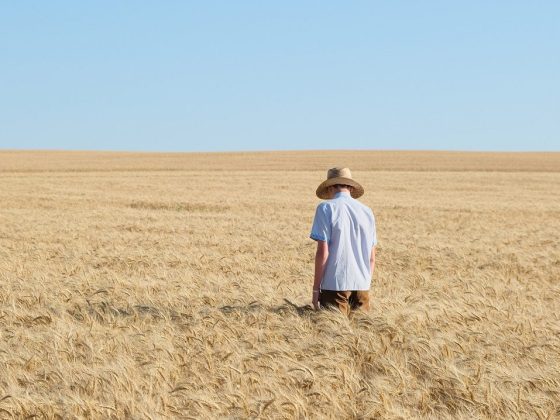Researchers in Australia, who intended to conduct a study on Australian Magpies, attached tiny trackers, weighing only 2.7g, to five birds in a flock of magpies in order to track their movements and habits.
Surprisingly, within hours, the trackers were all removed from the magpies by their fellow flock-mates. The tracked magpies tried to remove the devices by themselves but couldn’t. When other birds saw them trying to break free from the tracker straps, they jumped in to help, and within minutes, they were free.
The scientists explained that “While we’re familiar with magpies being intelligent and social creatures, this was the first instance we knew of that showed this type of seemingly altruistic behavior: helping another member of the group without getting an immediate, tangible reward.”
Between 2005 and 2007, I happened to meet the celebrated primatologist Jane Goodall several times. We had several fascinating conversations about nature and about the difference between human behavior and animal behavior. In one of our conversations, she shared with me that when you spend a long time in nature, you come to feel that it is full of love, and the only ones who do not feel it are we, people.
“Surprisingly, within hours, the trackers were all removed from the magpies by their fellow flock-mates. The tracked magpies tried to remove the devices by themselves but couldn’t. When other birds saw them trying to break free from the tracker straps, they jumped in to help, and within minutes, they were free.”
Indeed, if you examine nature closely, it is easy to see how much love there is in it. Nevertheless, love is not altruism. There is always a motive behind the things animals do for each other that comes from self-interest. In the case of the magpies, the birds with the trackers suddenly looked different from the rest of the flock, so other birds helped them restore their “normal” appearance.
Each bird in a flock or each animal in a pack sympathizes with the rest of the members of the group. Since the survivability of one bird largely depends on the size of the flock, it is clearly in the interest of the birds to have as large a flock as possible. This provides them with more protection from rivals or potential predators.
“Between 2005 and 2007, I happened to meet the celebrated primatologist Jane Goodall several times. We had several fascinating conversations about nature and about the difference between human behavior and animal behavior. In one of our conversations, she shared with me that when you spend a long time in nature, you come to feel that it is full of love, and the only ones who do not feel it are we, people.”
Humans, as Goodall noted, are different. We have an additional trait, if you can call it that: We enjoy seeing the suffering of others. When others suffer, especially when it is the result of our own actions, we feel superior, and the pleasure of superiority over others is a uniquely human trait.
This is why up to the human level, everything in nature is perfectly balanced. There is instinctive love, and everything works harmoniously. But when humans come into the picture, the insatiable lust for superiority disrupts the entire system. This is what makes us exploit and abuse others, overconsume, amass unnecessary wealth, and deplete the earth’s resources.
Because we are devoid of natural love, except in the case of blood relations, but today even these ties are breaking, we are the only beings on the planet that must “work” on loving others. It will not be altruism, since our actions will not be without reward. However, our reward will be to see the joy of others. Only when we can operate in this way will we stop abusing our surroundings and each other.
In short, the antidote to our delight in superiority is to develop an opposite feeling: pleasure in seeing the success of others. Only when we cultivate this feeling among us, as a society, will we have a chance at becoming caring like the rest of the animals in nature, and we will create a sustainable environment where all of us can flourish.











